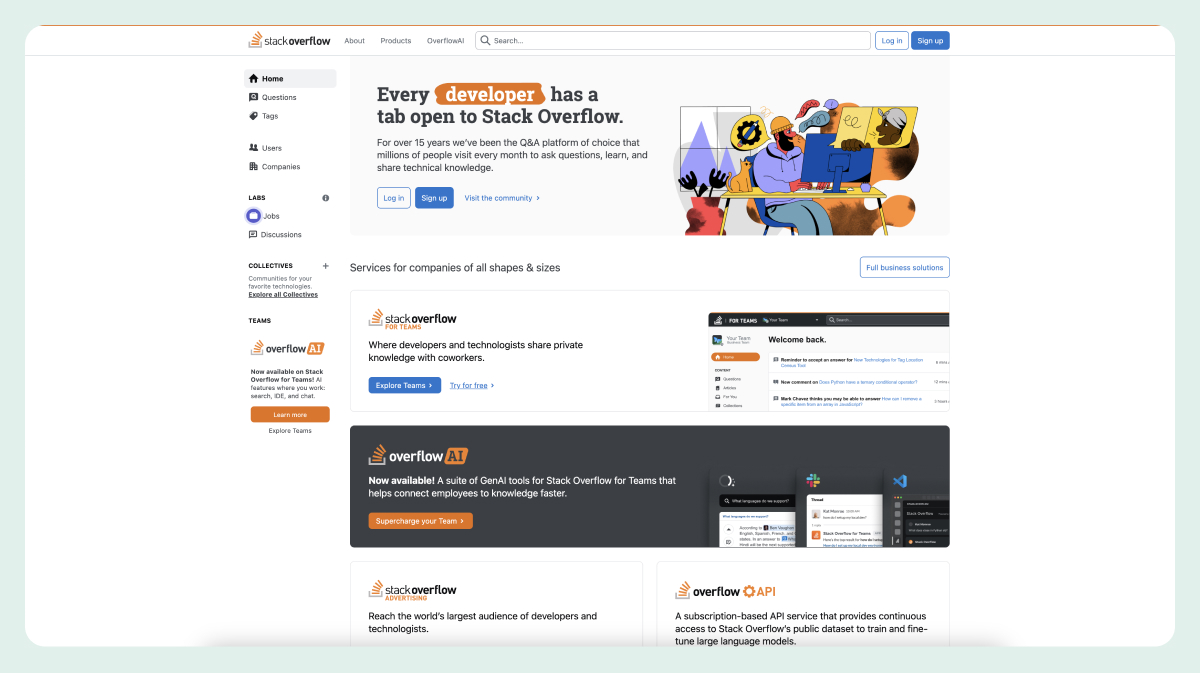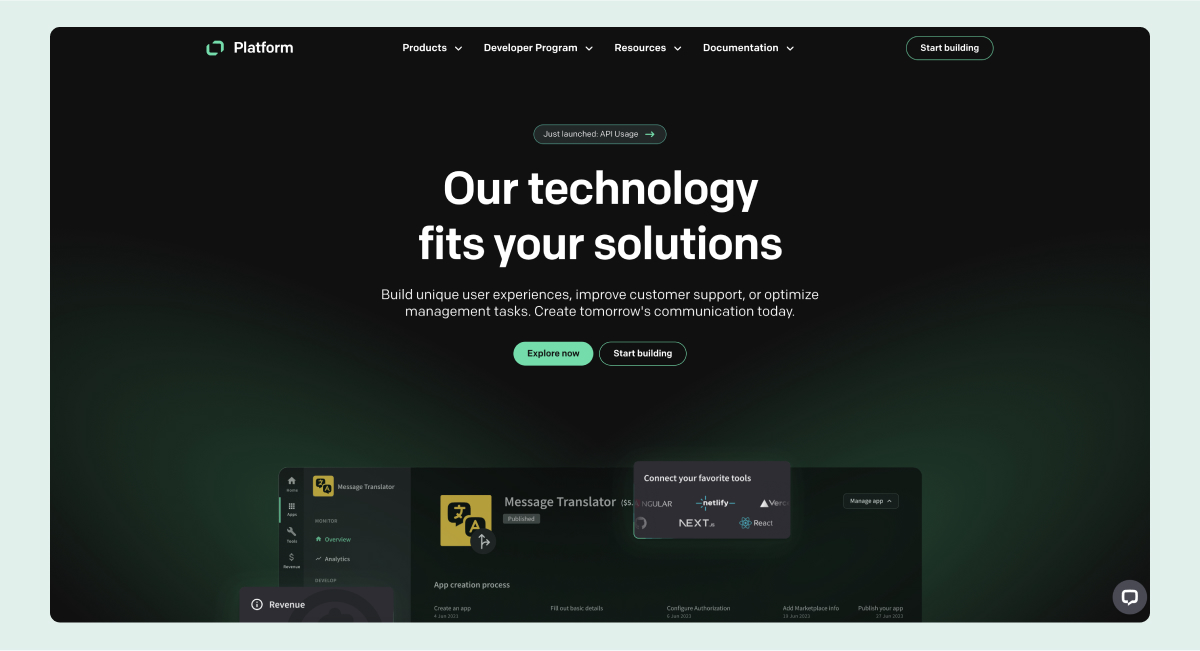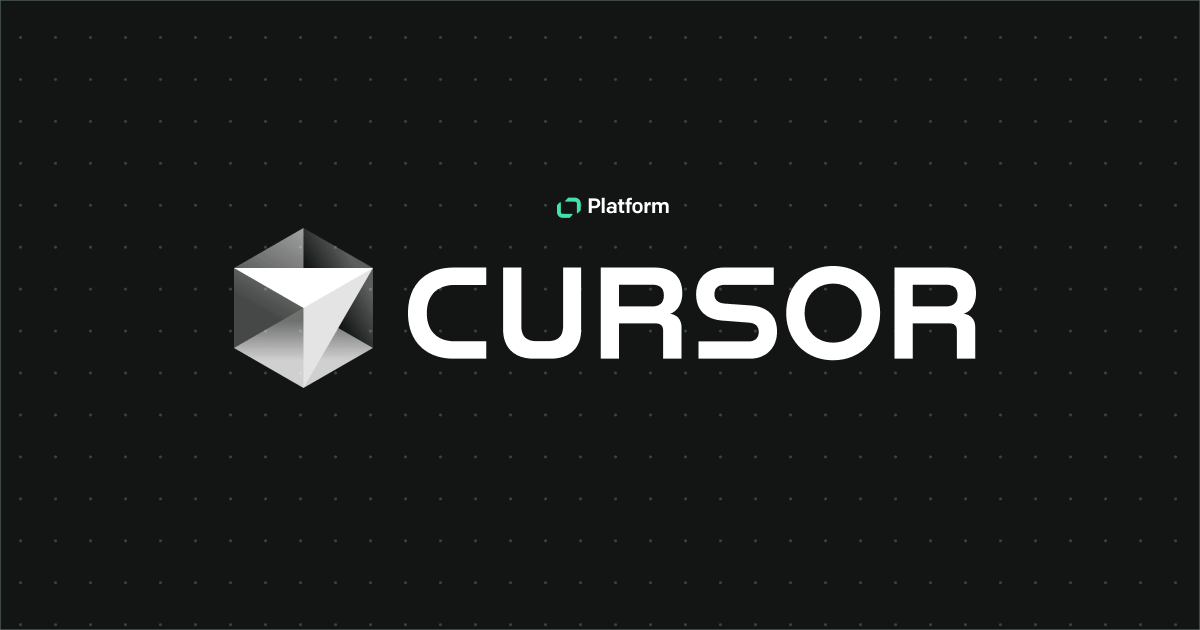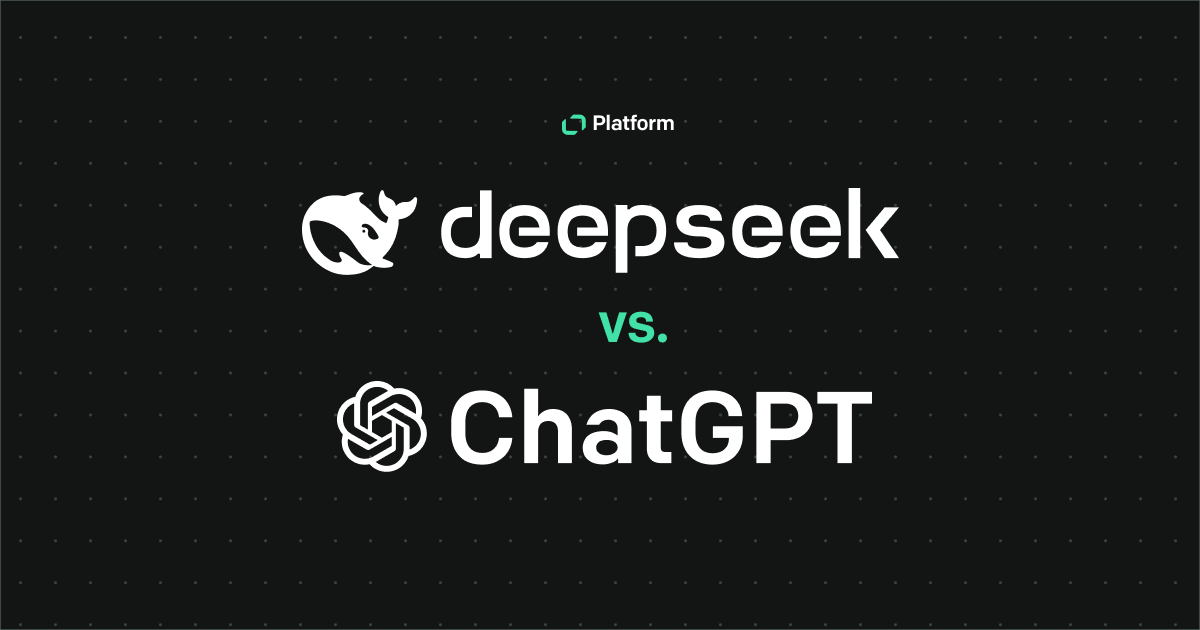Software development is one of the most in-demand skills. The U.S. Bureau of Labor Statistics projects a 25% growth in software development jobs before 2032, which is much faster than average growth.
The median annual pay for a software developer is $130,160—over three times higher than the average. This highlights the increasing demand for coding skills and software developers.
New software and web development services and apps appear everywhere you look. In February 2025, Google Play saw 52,000 new apps released in the Play Store. And many of today’s massive tech companies started as nothing more than a coder’s bright idea.
In other words, massive opportunities exist for coders. Unfortunately, many people believe that coding is hard to learn.
Is coding hard to learn? Let’s dive into the topic.
Is coding hard to learn?
Like any professional subject, coding (also known as “programming”) has a learning curve. It’s unlikely you’ll learn to code without following at least a few tutorials and putting in the necessary hours of practice.
However, if you look at it carefully, you’re unlikely to become a professional designer without studying a few courses either. No matter what skill you want to learn, you must put in the time to learn it and study the necessary materials.
If you sign up for a well-designed tutorial that doesn’t skip any steps, you’ll find that coding is far easier to learn than you thought.
A structured and supported learning process, including mentorship and community support, can significantly ease the journey of learning to code.
What makes it feel like coding is hard to learn?
Some elements of coding might make it seem harder to learn than other subjects. The main reason is that computers do not understand instructions in English or any other human language, requiring programmers to learn specific computer languages for different projects. However, each of these factors has a simple solution.
Lack of visual aids
Many programming tasks are text-heavy, meaning you look at tons of lines of code without any visual representation.
Considering that 65% of people are visual learners, this can make it feel like coding is hard to learn. However, numerous ways exist to make coding more visual, for example:
- Using a drag-and-drop editor such as Visual Studio to learn the basics of programming.
- Working on a “no-code” programming platform such as the Text Platform will help you understand basic programming concepts before diving deep into code.
- Following a tutorial or book that provides ample diagrams.
- Watching videos that visualize core programming concepts.
- Using a step-through debugger that lets you see what each line of code is doing as you run it.
Strange words and symbols
Programming languages have many reserved keywords instructing the computer to perform certain actions. For example, in the following pseudocode, some of the reserved keywords are “if,” “else,” and “then.”
If (input == "1") Then
// Do something
Else
// Do something else
End if
For a non-coder, the simple control structure above can feel overwhelming because, in addition to the reserved keywords, we also have two side-by-side equal signs and two sequential forward-slashes (“//”). Each of these symbols has a meaning, and the only way to learn that meaning is to study coding one step at a time.
It’s impossible to learn it all at once.
You can progress into more complicated terms as you practice and become more familiar with the common keywords.
It also helps to read code written by others. If the code contains too many unknown symbols, you can paste it into ChatGPT and ask it to explain those symbols.
Initial setup of complex tools
Some programming languages, such as C, C++, and Java, require several supporting tools or frameworks to compile and run them. In some cases, you might even need to modify basic settings on your computer.
This poses a barrier for someone who just wants to get started with writing a few lines of code.
Several solutions exist to this:
- Start with a programming language that requires little or no setup, such as Python. In many cases, you can just write a Python script and execute it without installing anything on your computer.
- Use an online editor that can run basic scripts.
- Use an Integrated Development Environment (IDE) that takes care of the environment settings for you. Popular IDEs include Visual Studio, IntelliJ IDEA, and Netbeans.
Believing you must know frameworks to know how to code
Coding itself is relatively easy to learn. However, coding for specific platforms, systems, or frameworks requires more learning.
For example, to write Android apps, you must know one of the programming languages that Android supports, such as Java. However, knowing Java alone isn’t enough; you must also learn Android-specific libraries and concepts, including the ecosystem of deploying an app and getting into the Google Play Store.
However, once you know Java, you already know how to code. You could use that knowledge to code for another platform.
So, the programming language itself and the associated frameworks are two separate things. This might make it feel like coding is hard to learn when, in fact, it’s the surrounding tools that pose the challenge.
The solution is to learn the language first and then learn the additional frameworks when needed.
Choosing the wrong programming language to start with
Some coding languages are far more challenging for beginners to understand than others. When choosing your first programming language, you might not yet know that C++ and C are notorious for being incredibly challenging languages to grasp. They also require many more lines of code to do things you could do in a single line of code in other languages, such as Python.
C++ and C indeed have other benefits, such as their lightning-fast speed, but these benefits only become apparent at extremely sophisticated levels of coding, such as in embedded software development.
Programming languages share many common concepts, and learning one language will make learning the next one much easier. It’s better to start with an easier-to-grasp language such as Python and graduate to more complex languages later.
Trying to learn the entire language just to do one thing
Modern languages have tons of libraries—pre-written code modules—that encapsulate advanced functionality. These libraries allow programmers to achieve complex tasks in only a few lines of code instead of using hundreds of lines. New libraries get developed every day, and many languages come pre-packaged with many libraries out of the box, such as Java, .Net, and Python.
It’s good to have an overview of the types of libraries to know what to look for when you need it. However, it isn’t necessary to know all the libraries like the back of your hand to learn how to code.
What makes coding easier to learn than other subjects?
There’s an opposite side of the coin. In many ways, “Is coding hard to learn?” is answered with the surprising, “Actually, it’s one of the easiest subjects to learn.”
Here’s why:
Coding is a hands-on subject
Programming is a hands-on subject. You can write simple scripts and apps that automate tasks on your computer or smartphone to make your life easier. This allows you to see results immediately and also helps keep you interested in the subject because it has real-world use.
Coding isn’t a theoretical subject; it’s a practical one. And many people find that learning practical tasks is easier than learning abstract tasks.
Almost all programming languages share core similarities
It’s quite common for programmers to learn multiple languages. That’s because many programming languages share core concepts. Some languages share common syntax, such as the C family of languages—Perl, C++, Java, C#, JavaScript, and others.
Many of the most widely used general-purpose programming languages are object-oriented programming (OOP) languages. Once you’ve learned the basics of OOP, you only need to learn the specific syntax, keywords, semantics, and toolchains of other OOP languages to start using them.
Even though learning how to code might be slow at the start, the momentum picks up once you’ve gained some experience.
Some coding languages require no setup or paid software at all
Unlike learning professional design, where you need expensive design software, you can start creating business-grade software and web applications without paying any money. In many cases, you don’t even need to set anything up on your computer.
For example, Python is pre-installed on almost all Linux distributions, so you can just start coding. Many professional IDEs are also free and easy to install, and various online coding services exist where you can simply start coding in your browser.
AI help
Generative AI is especially well-suited for helping with programming tasks because it’s been trained on so much open-source code. Although you must always verify any AI-generated output, it’s usually excellent when debugging and writing code, especially Python code.
The market is now well saturated with various AI tools to help you learn programming.
A massive and supportive community
An enormous open-source community exists that anyone can rely on when learning how to code. The open-source community is tremendously supportive of coders, and it has also created immense quantities of open-source code that you can freely look through to understand best coding practices.
Other types of supportive coding communities also exist, such as Stack Overflow or the Text Platform community for both beginner and professional developers who’ve started using the platform to earn an income as coders.
Being surrounded by like-minded and encouraging people generates a positive mindset when learning this valuable subject.

You can use what you learn to make your life easier
From the beginning, you can use what you learn about coding to write scripts and programs to streamline daily activities. Once you start to learn programming, you’ll recognize just how much of the world works on code—and how much of that code you can access to create simple tools that automate many of your daily tasks. You'll also boost your problem-solving skills, which are crucial for programmers.
The usefulness of coding lends itself to better learning because you’ll have an immediate goal each time to learn something new, and you’ll be able to apply it to a practical task immediately.
The easiest coding languages to learn
There are over 1,000 programming languages, so it would be impossible to fully answer the question of which is the most challenging to learn in only a short section. However, the following should provide ample guidance for beginners wanting to start with general-purpose programming.
Many agree that Python is the easiest general-purpose language to learn. It’s also one of the most powerful coding languages around. Python is so user-friendly that MIT now uses it to teach programming to beginners in its Computer Science program.
HyperText Markup Language (HTML) is another beginner-friendly language used by web developers to structure web pages and applications.
Visual Basic (VB) .Net has an incredibly simple syntax compared to the more abstract C-style syntax of JavaScript and C#. Also, because VB .Net is part of the Microsoft .Net family, you’ll become familiar with many of the powerful .Net classes that VB and C# have in common.
VB has limitations, and if you’re planning on doing any game development, you should move from VB to C# as soon as you feel more comfortable with coding.
C++ is another key language for game developers. However, C++ isn’t recommended for beginners. It’s a phenomenally powerful language that’s used in virtually every mainstream application, and it’s incredibly fast and lightweight, making it ideal for embedded solutions. However, C++ excels in advanced use cases, and it’s unlikely you’ll be working on those types of use cases in the early stages of your career. It’s better to pick up C++ after gaining experience in other languages—if you still need it.
Another good approach is to learn C# and then move into C++. The two languages share many similar concepts, and C# is an evolution of C++.
If you want to develop web applications, you can use C# and VB .Net for any apps that run on a Microsoft Server. In our experience, these don’t perform as well as apps written in PHP.
PHP is a powerful yet beginner-friendly language with plenty of open-source code. Its structures and rules are also somewhat forgiving, making it relatively easy to get started with.
JavaScript and TypeScript are essential languages for anyone who wants to create responsive web apps.
The above are just some examples and should give you a springboard from which to get going.
No-code and low-code platforms
No-code and low-code platforms are another great option for learning how to code because they let you visually create programs without confusing you with all the internal code. Once you’ve become familiar with some of the core concepts, you can dive into the coding itself, adding code snippets to some of your no-code solutions.
No-code and low-code platforms provide a gentle slope to ease the learning curve of studying coding from scratch. The Text Platform lets developers and non-developers create apps they can monetize without advanced coding knowledge.

Coding is a life skill in the modern age
Software and computers are so prevalent in our society that coding has become somewhat of a life skill. Even if you don’t become a professional coder, knowing the basics of coding helps you navigate many of the complexities associated with modern technology.
For those who want to write code and become professional developers, you definitely can. Many great online courses and tutorials exist to help you learn to program. Learning coding isn’t as challenging as many people believe, and we hope the above tips do away with some of the misconceptions about writing code.


